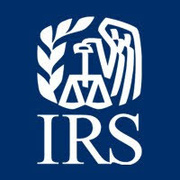Closing Date: 30th January, 2026
Description:
Summary:Are you interested in a rewarding and challenging opportunity? Join the U.S. Department of Justice!
The Civil Rights Division seeks experienced attorneys to work on a variety of significant and complex issues to enforce federal statutes and executive orders that prohibit unlawful discrimination, including discrimination in voting, education, employment, housing, police services, public accommodations and facilities, and federally funded and conducted programs.
Duties:
As a Trial Attorney, your duties may include: investigating allegations of civil rights discrimination or potential violations of the law; conducting extensive document review to gather, analyze, and evaluate data and evidence; interview witnesses; drafting legal and factual memoranda; presenting evidence to federal grand juries (if appropriate); developing cases for possible litigation; working with expert witnesses and other federal partners; presenting the government's case in federal or district court; conducting negotiations and mediations on a range of issues; and enforcing settlement agreements and remedial orders.
Applicants may select the Section(s) for which they would like to receive consideration. To learn more about each Section's work, click the corresponding name.
Appellate Section (https://www.justice.gov/crt/appellate-section): The Appellate Section was created in 1974 as a component of the Civil Rights Division. The Section works cooperatively with the trial sections in each of the Division's substantive enforcement areas in representing the United States in civil rights cases in the federal courts of appeals. Many of the Section's cases are appeals from district court judgments in cases originally handled by the Division's trial sections
Criminal Section (https://www.justice.gov/crt/criminal-section): One of the oldest of the Civil Rights Division's sections, the Criminal Section enforces laws that date to the post-Civil War Reconstruction Era. Originally a part of the Criminal Division, the Criminal Section and its enforcement authority was moved to the Civil Rights Division when the Division was created in 1957. The Criminal Section is the only component of the Civil Rights Division that prosecutes criminal violations.
Disability Rights (https://www.justice.gov/crt/criminal-section): Works to achieve equal opportunity for people with disabilities by implementing the Americans with Disabilities Act (ADA). DRS has a central role in enforcement, regulation, and technical assistance under the ADA, as well as Section 504 of the Rehabilitation Act.
Educational Opportunities (https://www.justice.gov/crt/educational-opportunities-section): Enforces Titles IV and VI of the Civil Rights Act of 1964, Title IX of the Education Amendments of 1972, the Americans with Disabilities Act, and Section 504 of the Rehabilitation Act. The Section also enforces the Equal Educational Opportunities Act of 1974, which requires states and school districts to provide English Learner students with appropriate services to overcome language barriers.
Employment Litigation (https://www.justice.gov/crt/employment-litigation-section): Enforces against state and local government employers the provisions of Title VII of the Civil Rights Act of 1964, as amended, and other federal laws prohibiting employment practices that discriminate on the grounds of race, sex (including pregnancy, sexual orientation, and gender identity), religion, and national origin. The Section also enforces against state and local government employers and private employers the Uniformed Services Employment and Reemployment Rights Act of 19940.
Housing and Civil Enforcement (https://www.justice.gov/crt/housing-and-civil-enforcement-section): Works to protect some of the most fundamental rights of individuals, including the right to access housing free from discrimination, the right to access credit on an equal basis, the right to patronize places of business that provide public accommodations and the right to practice one's faith free from discrimination. The Section also enforces the Fair Housing Act (https://www.justice.gov/crt/about/hce/housing_coverage.php), Equal Credit Opportunity Act (https://www.justice.gov/crt/about/hce/housing_ecoa.php); Title II of the Civil Rights Act of 1964 (https://www.justice.gov/crt/about/hce/title2.php); Religious Land Use and Institutionalized Persons Act (https://www.justice.gov/crt/about/hce/rluipaexplain.php); and the Servicemembers Civil Relief Act. (https://www.justice.gov/crt/about/hce/housing_scraexplain.php)
Immigrant and Employee Rights (https://www.justice.gov/crt/immigrant-and-employee-rights-section): Enforces the anti-discrimination provision (274B) of the Immigration and Nationality Act (INA), 8 U.S.C. 1324b. This federal law prohibits: 1) citizenship status discrimination in hiring, firing, or recruitment or referral for a fee, 2) national origin discrimination in hiring, firing, or recruitment or referral for a fee, 3) unfair documentary practices during the employment eligibility verification process (generally, the Form I-9 and E-Verify processes), and 4) retaliation or intimidation.
Special Litigation (https://www.justice.gov/crt/special-litigation-section): Works to protect civil rights in the following areas: 1) the rights of people in state or local institutions, including: jails, prisons, juvenile detention facilities, and health care facilities for persons with disabilities; 2) the rights of individuals with disabilities to receive services in their communities, rather than in institutions; 3) the rights of people who interact with state or local police or sheriffs' departments; 4) the rights of youth involved in the juvenile justice system; 5) the rights of people to have safe access to reproductive health care clinics; and 6) the rights of people to practice their religion while confined to state and local institutions.
Voting (https://www.justice.gov/crt/voting-section): Enforces the civil provisions of federal statutes designed to safeguard the right to vote of all American citizens, including the Voting Rights Act, Uniformed and Overseas Citizens Absentee Voting Act, National Voter Registration Act, Help America Vote Act, and Civil Rights Acts.
Requirements:
Conditions of Employment:
Qualifications:
Required Qualifications:
Applicants must possess a JD from an American Bar Association accredited law school, be an active member of the bar in good standing (any jurisdiction) and possess the minimum years of post-professional law degree experience commensurate to the grade level of eligibility, as shown below. Applicants also must have strong, demonstrated qualifications in the following areas: academic achievement; substantive knowledge and expertise in the laws, rules, and regulations applicable to the work of the section or substantially similar laws, rules, and regulations; written and oral communication skills; the ability to analyze complex issues; skill and experience working collaboratively and productively with others; organizational skills; professional judgment; initiative; and the ability to excel in a fast-paced, demanding environment. In addition, applicants must have outstanding professional references.
Possessing the minimum post law degree legal experience does not guarantee the applicant will be selected at that grade level.
Preferred Qualifications:
The following demonstrated qualifications are preferred but not required: substantive knowledge and expertise in Judicial clerkships (especially in federal court), law review, moot court, clinical experience, and skill and experience working cooperatively and productively with a range of people, such as charging parties, witnesses, respondents, disadvantaged or disenfranchised groups, opposing counsel, judicial or administrative officials, advocacy groups, law enforcement personnel, and the staff of other federal or state governmental agencies, are also preferred.
Education:
You must possess a JD.
Education completed in foreign colleges or unive
Applicants may select the Section(s) for which they would like to receive consideration. To learn more about each Section's work, click the corresponding name.
Appellate Section (https://www.justice.gov/crt/appellate-section): The Appellate Section was created in 1974 as a component of the Civil Rights Division. The Section works cooperatively with the trial sections in each of the Division's substantive enforcement areas in representing the United States in civil rights cases in the federal courts of appeals. Many of the Section's cases are appeals from district court judgments in cases originally handled by the Division's trial sections
Criminal Section (https://www.justice.gov/crt/criminal-section): One of the oldest of the Civil Rights Division's sections, the Criminal Section enforces laws that date to the post-Civil War Reconstruction Era. Originally a part of the Criminal Division, the Criminal Section and its enforcement authority was moved to the Civil Rights Division when the Division was created in 1957. The Criminal Section is the only component of the Civil Rights Division that prosecutes criminal violations.
Disability Rights (https://www.justice.gov/crt/criminal-section): Works to achieve equal opportunity for people with disabilities by implementing the Americans with Disabilities Act (ADA). DRS has a central role in enforcement, regulation, and technical assistance under the ADA, as well as Section 504 of the Rehabilitation Act.
Educational Opportunities (https://www.justice.gov/crt/educational-opportunities-section): Enforces Titles IV and VI of the Civil Rights Act of 1964, Title IX of the Education Amendments of 1972, the Americans with Disabilities Act, and Section 504 of the Rehabilitation Act. The Section also enforces the Equal Educational Opportunities Act of 1974, which requires states and school districts to provide English Learner students with appropriate services to overcome language barriers.
Employment Litigation (https://www.justice.gov/crt/employment-litigation-section): Enforces against state and local government employers the provisions of Title VII of the Civil Rights Act of 1964, as amended, and other federal laws prohibiting employment practices that discriminate on the grounds of race, sex (including pregnancy, sexual orientation, and gender identity), religion, and national origin. The Section also enforces against state and local government employers and private employers the Uniformed Services Employment and Reemployment Rights Act of 19940.
Housing and Civil Enforcement (https://www.justice.gov/crt/housing-and-civil-enforcement-section): Works to protect some of the most fundamental rights of individuals, including the right to access housing free from discrimination, the right to access credit on an equal basis, the right to patronize places of business that provide public accommodations and the right to practice one's faith free from discrimination. The Section also enforces the Fair Housing Act (https://www.justice.gov/crt/about/hce/housing_coverage.php), Equal Credit Opportunity Act (https://www.justice.gov/crt/about/hce/housing_ecoa.php); Title II of the Civil Rights Act of 1964 (https://www.justice.gov/crt/about/hce/title2.php); Religious Land Use and Institutionalized Persons Act (https://www.justice.gov/crt/about/hce/rluipaexplain.php); and the Servicemembers Civil Relief Act. (https://www.justice.gov/crt/about/hce/housing_scraexplain.php)
Immigrant and Employee Rights (https://www.justice.gov/crt/immigrant-and-employee-rights-section): Enforces the anti-discrimination provision (274B) of the Immigration and Nationality Act (INA), 8 U.S.C. 1324b. This federal law prohibits: 1) citizenship status discrimination in hiring, firing, or recruitment or referral for a fee, 2) national origin discrimination in hiring, firing, or recruitment or referral for a fee, 3) unfair documentary practices during the employment eligibility verification process (generally, the Form I-9 and E-Verify processes), and 4) retaliation or intimidation.
Special Litigation (https://www.justice.gov/crt/special-litigation-section): Works to protect civil rights in the following areas: 1) the rights of people in state or local institutions, including: jails, prisons, juvenile detention facilities, and health care facilities for persons with disabilities; 2) the rights of individuals with disabilities to receive services in their communities, rather than in institutions; 3) the rights of people who interact with state or local police or sheriffs' departments; 4) the rights of youth involved in the juvenile justice system; 5) the rights of people to have safe access to reproductive health care clinics; and 6) the rights of people to practice their religion while confined to state and local institutions.
Voting (https://www.justice.gov/crt/voting-section): Enforces the civil provisions of federal statutes designed to safeguard the right to vote of all American citizens, including the Voting Rights Act, Uniformed and Overseas Citizens Absentee Voting Act, National Voter Registration Act, Help America Vote Act, and Civil Rights Acts.
Requirements:
Conditions of Employment:
- Must be a U.S. Citizen or National
- All male applicants born after 12/31/1959 must have registered for the selective service. If selected, the applicant must sign a statement certifying his registration, or the applicant must demonstrate exempt status under the Selective Service Law.
- You may be required to complete a one- or two-year probationary period.
- You may be required to complete a pre-employment security screening to initiate your background investigation, which includes a drug screening. Continued employment is contingent upon successful completion and adjudication of your investigation.
- You must have a JD degree from a law school accredited by the American Bar Association and be a member in good standing of the bar of a state or territory of the United States, the District of Columbia or the Commonwealth of Puerto Rico.
- DOJ uses E-Verify, an internet-based system, to confirm the eligibility of all newly hired employees to work in the United States. Learn more about E-Verify, including your rights and responsibilities, by visiting www.e-verify.gov/.
- You must meet all qualification requirements by the closing date of this announcement.
- Resume cannot exceed two (2) pages.
Qualifications:
Required Qualifications:
Applicants must possess a JD from an American Bar Association accredited law school, be an active member of the bar in good standing (any jurisdiction) and possess the minimum years of post-professional law degree experience commensurate to the grade level of eligibility, as shown below. Applicants also must have strong, demonstrated qualifications in the following areas: academic achievement; substantive knowledge and expertise in the laws, rules, and regulations applicable to the work of the section or substantially similar laws, rules, and regulations; written and oral communication skills; the ability to analyze complex issues; skill and experience working collaboratively and productively with others; organizational skills; professional judgment; initiative; and the ability to excel in a fast-paced, demanding environment. In addition, applicants must have outstanding professional references.
Possessing the minimum post law degree legal experience does not guarantee the applicant will be selected at that grade level.
- GS-13 - minimum 1.5 years post-JD legal experience
- GS-14 - minimum 2.5 years post-JD legal experience
- GS-15 - minimum 4 years post-JD legal experience
Preferred Qualifications:
The following demonstrated qualifications are preferred but not required: substantive knowledge and expertise in Judicial clerkships (especially in federal court), law review, moot court, clinical experience, and skill and experience working cooperatively and productively with a range of people, such as charging parties, witnesses, respondents, disadvantaged or disenfranchised groups, opposing counsel, judicial or administrative officials, advocacy groups, law enforcement personnel, and the staff of other federal or state governmental agencies, are also preferred.
Education:
You must possess a JD.
Education completed in foreign colleges or unive





